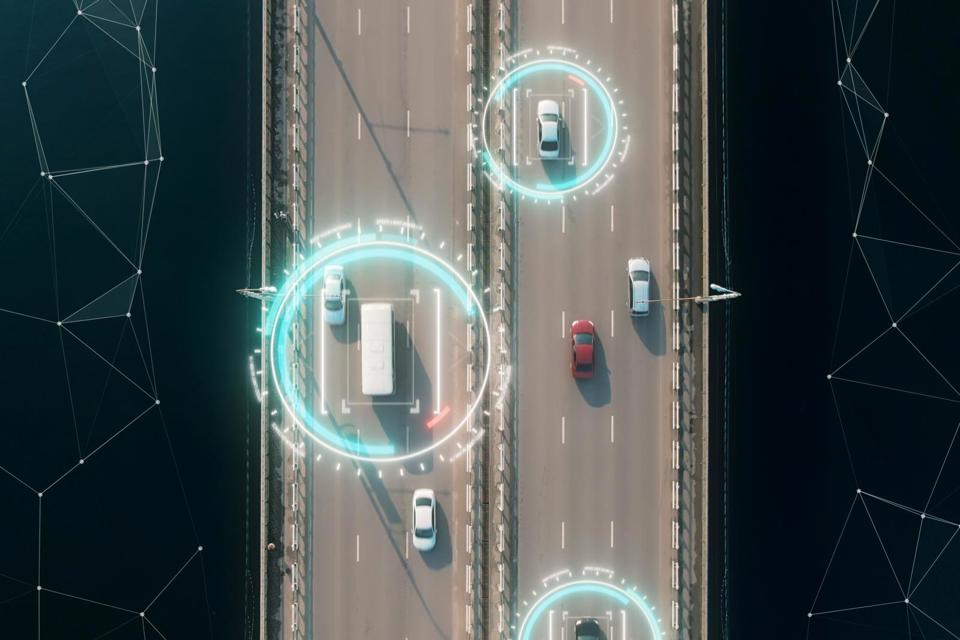The development of a “digital twin” for fleet managers enabled by artificial intelligence (AI) will be offered by Bridgestone Mobility Solutions within the next two years.
AI has been helping fleet managers manage their operations through a range of connected devices and vehicles for a number of years.
However, the technology is predicted to transform the fleet manager’s role further, with next-generation AI fleet management products creating an even greater level of actionable insights.
Raghunath Banerjee, vice president of data solutions at Bridgestone Mobility Solutions, told Fleet News how the step-change in technology will impact fleets.
“Today they are looking at a static report to make their decisions, tomorrow they will get a lot more insights in real time, which will change their operations, which will change their workflow, which will change their interaction with different departments,” he said.
“In the longer term, it is going to become a digital twin.”
In a survey conducted by Bridgestone Mobility Solutions, a third (32%) of the fleets surveyed said that they expect AI and machine learning will have the biggest impact on fleet management in the next five years.
Almost all (99%) of the 1,800 respondents said they expected AI to impact their fleet management “significantly” over the same timeframe.
Fleets will be familiar with Webfleet, Bridgestone’s fleet management solution. It is used by more than 60,000 business globally to drive fleet efficiencies, boost safety, stay compliant and work more sustainably.
“If you think of route optimisation, if you think of field management, if you think of AI video telematics, these are all different pillars today,” explained Banerjee.
“They don’t necessarily talk to each other. But what will happen is all these individual systems will talk to each other, become more smarter, and will eventually become a virtual fleet manager.
“Of course, it's not going to take the job of the fleet manager. They will get a virtual fleet manager who is really going to help them, train them, provide them with the right insight.”
Banerjee (pictured below) expects this virtual fleet manager, which will be accessible through a chatbot, to be part of its offering within the next two years.

Using ChatGPT provides a simple way to use AI to get an answer to almost any question it is asked.
The GPT stands for Generative Pre-trained Transformer, which refers to how ChatGPT processes requests and formulates responses – it uses specialised algorithms to find patterns within data sequences.
The language model can respond to questions and compose various written content, including articles, social media posts, essays, code and emails.
With fleets, it could provide instant access to data from multiple sources, enabling a more proactive approach to fleet management.
“The fleet manager has an option to really interact (with the technology) and make their life easier,” said Banerjee.
However, while the technology is available today, he explains that the company is focused on ensuring it delivers a solution which delivers for fleets, rather than rushing to market.
With AI’s influence expected to increase, fleet decision-makers were also fairly positive about the technology’s use in Bridgestone’s survey.
More than two-in-five fleets (42%) said there were not concerned about AI, compared to just less than a quarter (24%) who said they were worried about its use.
The main concerns seemed to be related to integration of processes (53%) and data privacy/security (49%).
In terms of how AI may improve fleet operations, the biggest expected impact was around optimising route planning and logistics (62%) and improving driver safety (56%), while a similar proportion (55%) expect AI to enhance predictive maintenance and asset management.
“AI can talk to multiple systems, cater to your customers’ needs and provide to the right insight,” explained Banerjee.
“We already know there are several video telematics solutions, including our own solution, using AI very actively, monitoring the driver behaviour and looking at the road conditions.”
However, the next iteration of AI, he says, will prove decisive in enabling fleet managers to manage the wealth of data increasingly becoming available to them.
“Fleet managers don’t have the time to review thousands of alerts, thousands of insights to make a decision,” he explained.
“Informed decision-making is becoming complicated, because of the enormous volumes of data, that’s where we feel that AI has a very specific role to play.”
Several studies, according to Banerjee, have shown that just 10% of the data available today to fleet decision-makers is viewed.
“They have a huge access to data which they’re not using, and this is where I see that AI is definitely going to help, because you don’t have to physically monitor the data, AI will monitor it for you and give you the insight.”
He concluded: “AI is really going to become an important part of our life, helping the fleet and making the fleet even smarter.”





















Login to comment
Comments
No comments have been made yet.